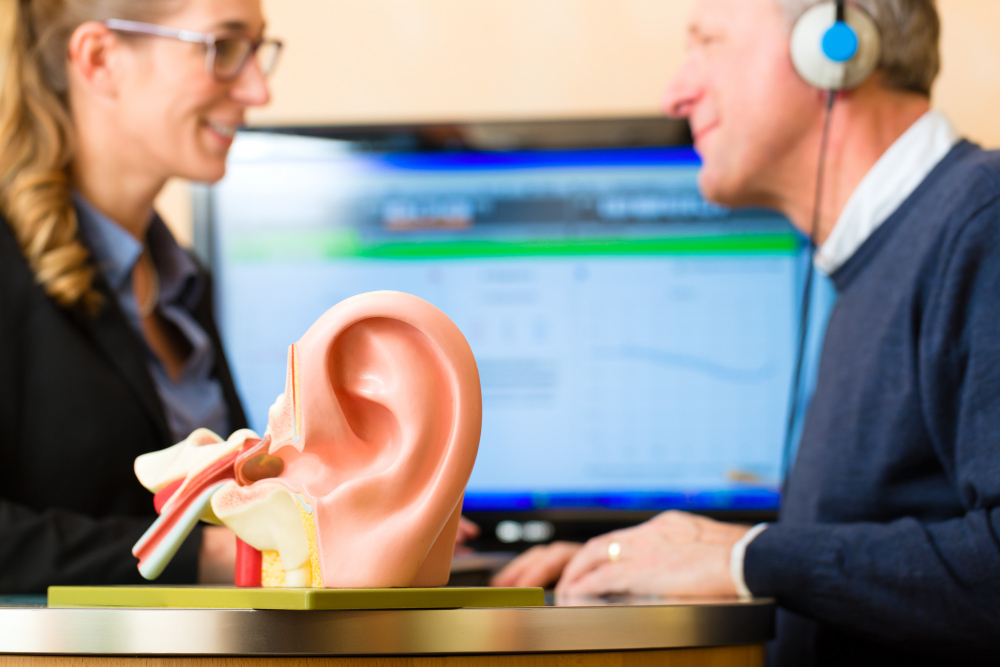Introduction: Understanding Auditory Perception Tests
Auditory perception tests help check how well you hear and understand sounds. These tests are important for people of all ages. Early testing can find hearing problems before they get worse. According to the World Health Organization (WHO), over 5% of people worldwide have hearing loss. Because of this, regular hearing assessment is important for everyone.
What Are Auditory Perception Tests?
Auditory perception tests are simple checks that measure how your brain processes sounds. They do not just test if you can hear. Instead, they look at how well you understand speech, music, and other noises. For example, these tests can show if you have trouble hearing in noisy places. They are a key part of a full hearing assessment.
Why Are Auditory Perception Tests Done?
There are many reasons to have auditory perception tests. First, they help find hearing loss early. Second, they can show if you have trouble understanding speech. Third, they help doctors plan the best treatment for you. In addition, these tests can check if hearing aids or other devices are working well. Sometimes, children need these tests if they have trouble learning or speaking. Adults may need them if they notice changes in hearing.
Types of Auditory Perception Tests
There are several types of auditory perception tests. Each one checks a different part of hearing. Here are some common types:Pure Tone Audiometry: This test checks the softest sounds you can hear at different pitches.Speech Recognition Test: It measures how well you understand spoken words.Auditory Discrimination Test: This test checks if you can tell the difference between similar sounds.Auditory Memory Test: It looks at how well you remember sounds or words you hear.Auditory Figure-Ground Test: This test checks if you can focus on sounds in noisy places.
Each test gives useful information about your hearing health.
How Are Auditory Perception Tests Performed?
The process for auditory perception tests is simple and safe. Here is what usually happens:The audiologist will ask about your hearing and health history.You will sit in a quiet room or sound booth.Headphones or earphones are placed over your ears.You will listen to different sounds, tones, or words.You may press a button or repeat words you hear.The audiologist records your answers and checks the results.
Most tests take 30 to 60 minutes. You can ask questions at any time.
What to Expect During the Test
Before the test, you do not need special preparation. However, it helps to be well-rested. Wear comfortable clothes and avoid loud noises before your appointment. During the test, you may hear beeps, words, or sentences. The room will be quiet, so you can focus. If you feel nervous, let the audiologist know. They will explain each step and make you feel at ease.
Understanding the Results
After the test, the audiologist will explain your results. They may use charts or simple words. The results show how well you hear different sounds. If you have hearing loss, the audiologist will discuss next steps. Sometimes, you may need more tests or a hearing aid. If your hearing is normal, you may just need regular check-ups. Always ask questions if you do not understand the results.
When to Consult an Audiologist
You should see an audiologist if you notice any of these signs:Difficulty hearing in groups or noisy placesFrequently asking others to repeat themselvesTurning up the TV or radio louder than others preferRinging or buzzing in your earsTrouble understanding speech, especially on the phone
Early help can prevent further hearing loss. Children with speech or learning problems should also be tested.
Prevention and Hearing Health Tips
Protecting your hearing is important for everyone. Here are some easy tips:Keep the volume low when using headphones or earbudsWear ear protection in loud places, like concerts or construction sitesTake breaks from loud noiseHave regular hearing assessments, especially if you are over 50Avoid putting objects in your earsSee a doctor if you have ear pain or infection
Following these tips can help you keep your hearing healthy for life.
Conclusion
Auditory perception tests are simple, safe, and important for everyone. They help find hearing problems early and guide the best care. If you notice any changes in your hearing, do not wait. Consult a certified audiologist for personalized hearing assessment and advice.

